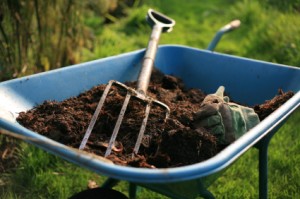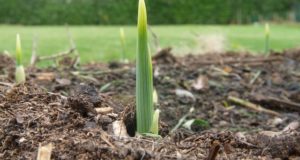 Hello Everybody! Hope you all had a great holiday and your New Year is going well! I don’t know about you, but time just slipped away from me. I can’t believe it’s already the second week in January! I wonder if any of you made New Year’s resolutions? If so, how many have already been broken?
Hello Everybody! Hope you all had a great holiday and your New Year is going well! I don’t know about you, but time just slipped away from me. I can’t believe it’s already the second week in January! I wonder if any of you made New Year’s resolutions? If so, how many have already been broken?
My resolution this year is to be better about composting. With that in mind, I thought it would be nice to share some tips with you about how to be a successful composter! Read on to learn more!
Composting is very easier and it’s the least expensive way you can benefit your survival garden. After all, most of the items you throw into your compost bin would probably just be thrown away. So, by making these “cast-offs” into a yummy treat for your survival garden, you’re practicing the 3 R’s—Reduce, Reuse, and Recycle!
The best compost is made up of four main ingredients: nitrogen, carbon, water, and air. Where do you get these ingredients? Simple:
- You can get nitrogen from your greener, wetter waste such as grass clippings, vegetable scraps, manure, and non-intrusive weeds.
- Carbon can be attained by mixing in your drier, brown waste such as leaves, straw, pine needles, and even small twigs.
- Water, well, we all know where to get water.
- Air is “mixed” into your compost by being a diligent “turner-overer”!
Now, when starting your compost pile, you want to mix equal parts nitrogen to equal parts carbon. You can either mix everything together or layer it—one layer of nitrogen, then one layer of carbon, and so on.
Water is important because all of the tiny microorganisms in the waste like to be moist. These organisms are the ones doing the real work. They break down all of this waste into a beneficial food your plants can use, so you want them to be happy. Once every few days you’ll want to water your pile, making sure to insert your hose into different spots in the pile to attain even watering. Just watering the top of your pile is pointless!
And air? How do you get air into your pile? Easy! Using a shovel or pitchfork, till your compost pile every few days. And on the days you don’t till, use a stick to poke holes in the pile so that air can get in. Good aeration is important and will help speed up the decomposition process.
The important thing to remember is that you can’t really mess up compost. Anything is better than nothing! Depending on what you’re growing in your garden, you can adjust your ingredients (more nitrogen, less carbon, and vice versa). Before you know it, you’ll be an expert composter and your survival garden will be very happy with you!
If you liked this article you may be interested in this product from our sponsor.

 Off The Grid News Better Ideas For Off The Grid Living
Off The Grid News Better Ideas For Off The Grid Living



